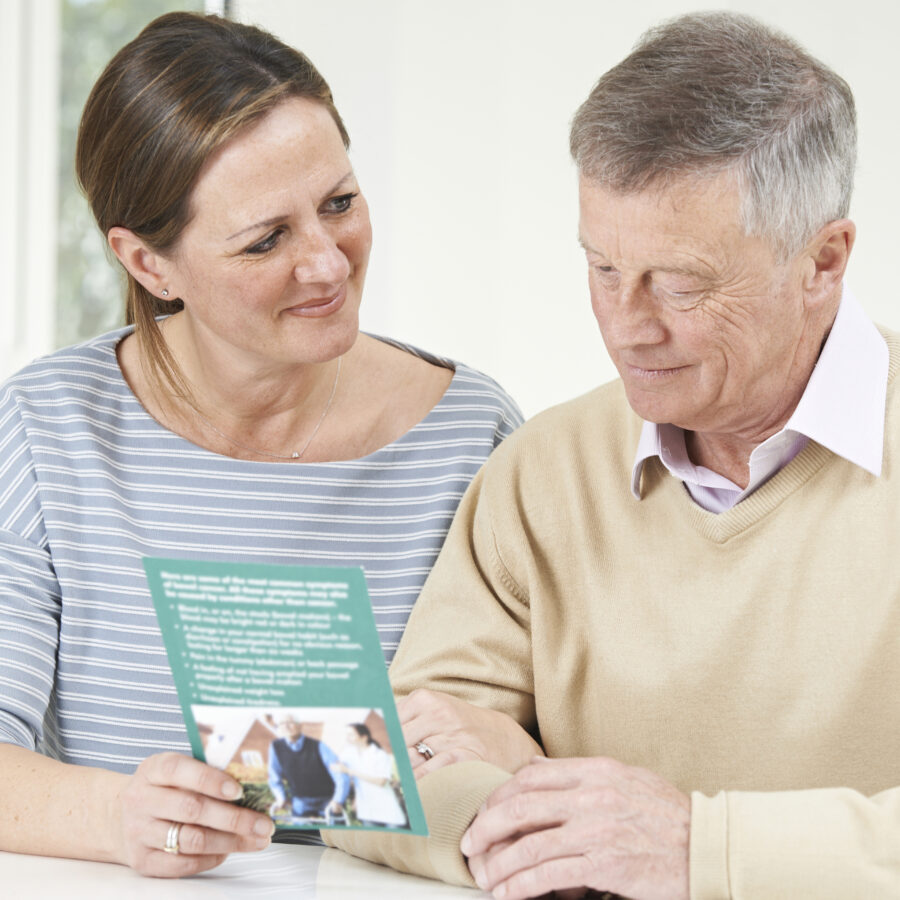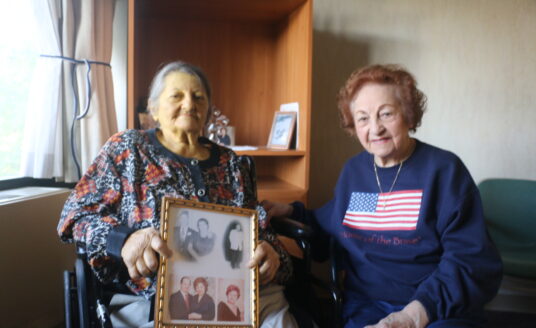If you’re a caregiver for a senior, you want them to be happy and have as much independence as possible. But your primary concern is to keep your senior loved one safe.
“As caregivers, we must be prepared,” said Kelly Haner, bereavement assistant with Bethesda Hospice Care. “We need to recognize the signs that indicate it’s time for our loved one to pursue living in an independent living retirement community, or to move to the next level of care. However, we also need to plan ahead and talk to our loved ones before those decisions need to be made, to see what they want to happen when that day comes.”
Many senior living, care, and service organizations, such as Bethesda, address the “big picture” when it comes to our senior loved ones—offering a continuum of senior care options that address all of their needs.
Different Levels of Senior Care
Independent Living: An ideal living option for older adults who can still live independently. Seniors have their own private residence and come and go as they please. Residents have convenient access to dining, housekeeping, activities, wellness programs, entertainment, and much more. Plus, the maintenance-free lifestyle gives residents the freedom to do more of what they love.
Assisted Living: Residents have their own private living area, often with a small kitchen. However, meals are eaten together in a communal dining room, assistance with taking medication is included, and social activities and wellness programs are provided.
Skilled Nursing: Seniors receive care and attention 24 hours a day. Their meals are provided, and staff members are there to take care of residents’ needs. Memory support is offered at many skilled nursing communities for seniors living with Alzheimer’s and other forms of memory loss.
Signs That Seniors Are Ready to Move to an Independent Living Residence
Seniors who are ready for independent living are fully capable of making the decision for themselves, though many will choose to secure confirmation or approval from their adult children. They may want to downsize, and eliminate the need to maintain their current home. Perhaps they don’t want to work in their yard anymore. Also, they could be lonely and desire to move to a place where they’ll be near other people their age with similar interests. They may be interested in the security of living in a community with staff available to help them. Among the senior care options available, Independent Living offers the most flexibility.
Signs a Senior is Ready for Assisted Living
Assisted Living is a great senior care option for those who sometimes need a helping hand. However, it may not always be easy for the senior to know when to make the move. There are many indicators that your senior loved one is ready for an assisted living community, including:
- They’re not eating enough. Maybe the senior is having trouble preparing food, or forgetting to eat.
- Increasing number of bumps and bruises. These are often signs that a senior is having trouble staying on their feet and could be at risk of taking a dangerous fall.
- The laundry is piling up. A messy house could be a sign that a senior is having trouble keeping up with their basic household chores, especially if the senior has kept organized in the past. Keep an eye out for dirty dishes in the sink or bills going unpaid.
- Hygiene has declined. Is mom and dad’s personal grooming up to their usual standards? If not, they may be having trouble bathing themselves.
Signs a Senior is Ready for Skilled Nursing Care
When your loved one is no longer able to take care of themselves, Skilled Nursing may be the best senior care option. Ask yourself the following questions to determine if it is time for Skilled Nursing.
- Does your loved one need more medical care than you are able to provide while holding down your job and taking care of your household?
- Is the senior losing their mobility? If Mom or Dad can’t get around the house to use the restroom, feed themselves or get to places they need to go, like doctor appointments, it may be time to consider 24-hour care.
- Does your loved one show signs of dementia or memory loss? A senior who wanders may be having memory issues and require full-time assistance.
- Do they need frequent care from medical specialists? Skilled nursing facilities provide specialist care like physical therapy, wound treatment and attention from social workers.
Plan Senior Care Options in Advance
“Often times, seniors are apprehensive about moving to the next level of care,” Kelly said. “But if you discuss the future with them before an emergency situation arises, the transition can be much smoother. Take Mom or Dad to visit independent living or assisted living communities, and make them part of the decision-making process. They’ll be much more comfortable about the future if they know what to expect.”
Bethesda has a variety of senior living communities across the St. Louis area. We will help you every step of the way to find the right level of care for your loved one.
Contact Bethesda for help exploring senior care options, and to find the right fit for your loved one.
| Whether in independent living, assisted living, memory care, or skilled nursing, Bethesda offers the right amenities, services, programming, and staff to make every day full of purpose. See for yourself and tour our independent living communities, including Bethesda Barclay House – Clayton, Bethesda Gardens – Kirkwood, Bethesda Orchard – Webster Groves, Bethesda Terrace – South County, Village North Retirement Community – Florissant, and The Oaks at Bethesda Villas – Kirkwood/Webster. |
Want to find out more?
If you’d like to stay up to date with Bethesda Health Group, sign up here to receive our blog and newsletters!
"*" indicates required fields
Related Articles
Want to find out more?
If you’d like to stay up to date with Bethesda Health Group, sign up here to receive our blog and newsletters!
"*" indicates required fields



